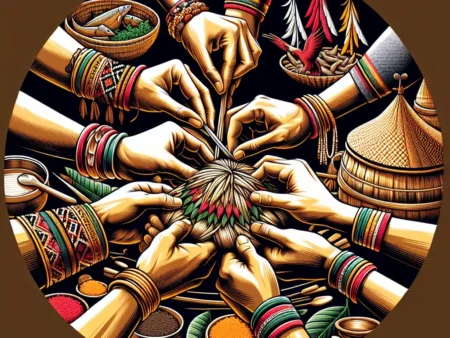Tradisi Masyarakat Bali: Kearifan Lokal dan Pariwisata.
Tradisi Masyarakat Bali: Antara Kearifan Lokal dan Pariwisata
-
Table of Contents
- Introduction
- The Cultural Significance of Balinese Traditions
- Religion and Spirituality
- Tri Hita Karana: The Balinese Philosophy
- Traditional Ceremonies and Rituals
- The Impact of Tourism on Balinese Traditions
- The Rise of Tourism in Bali
- Commercialization and Cultural Appropriation
- Environmental Impact
- Preserving Balinese Traditions in the Face of Tourism
- Community Initiatives
- Sustainable Tourism Practices
- Government Support
- Conclusion
Introduction

Bali, an island in Indonesia, is renowned for its rich cultural heritage and vibrant traditions. The local community in Bali has managed to preserve their unique customs and practices despite the influx of tourism. This article explores the traditions of the Balinese people, their significance, and the delicate balance between preserving their cultural heritage and catering to the demands of tourism.
The Cultural Significance of Balinese Traditions
Religion and Spirituality
Religion plays a central role in the lives of the Balinese people. The majority of the population practices a unique form of Hinduism known as Balinese Hinduism. This religion is a blend of Hinduism, Buddhism, and animism, resulting in a distinct set of beliefs and rituals. Balinese Hinduism emphasizes the balance between good and evil, and the rituals associated with it are performed to maintain harmony with the spiritual world.
Tri Hita Karana: The Balinese Philosophy
Tri Hita Karana is a fundamental philosophy in Balinese culture that promotes harmony and balance between humans, nature, and the spiritual realm. This philosophy guides the Balinese people in their daily lives, influencing their interactions with others, their respect for nature, and their spiritual practices. The concept of Tri Hita Karana is deeply ingrained in Balinese traditions and is reflected in various ceremonies and rituals.
Traditional Ceremonies and Rituals
Balinese ceremonies and rituals are an integral part of the local culture. These events are held to honor deities, ancestors, and spirits, and to seek blessings for various aspects of life. Some of the most significant ceremonies include Galungan, Nyepi, and Odalan. Galungan is a celebration of the victory of good over evil, while Nyepi is a day of silence and self-reflection. Odalan, on the other hand, is a temple anniversary celebration that involves vibrant processions, music, and dance.
The Impact of Tourism on Balinese Traditions
The Rise of Tourism in Bali
In recent decades, Bali has experienced a significant increase in tourism. The island’s natural beauty, cultural heritage, and warm hospitality have attracted millions of visitors each year. While tourism has brought economic benefits to the local community, it has also posed challenges to the preservation of Balinese traditions.
Commercialization and Cultural Appropriation
The commercialization of Balinese traditions has become a concern for the local community. Some traditional ceremonies and rituals have been modified or commodified to cater to tourist expectations. This has led to a dilution of the original meaning and significance of these practices. Additionally, cultural appropriation has become an issue, with tourists participating in ceremonies without fully understanding or respecting their cultural context.
Environmental Impact
The rapid growth of tourism has also taken a toll on Bali’s environment. The construction of hotels, resorts, and other tourist infrastructure has resulted in deforestation, pollution, and the depletion of natural resources. These environmental challenges not only threaten the island’s biodiversity but also disrupt the balance between humans, nature, and the spiritual realm, as emphasized in the Tri Hita Karana philosophy.
Preserving Balinese Traditions in the Face of Tourism
Community Initiatives
The Balinese community has taken various initiatives to preserve their traditions amidst the growing tourism industry. Local organizations and cultural centers have been established to educate both locals and tourists about Balinese culture. These initiatives aim to raise awareness about the significance of traditions, promote responsible tourism, and discourage cultural appropriation.
Sustainable Tourism Practices
To mitigate the environmental impact of tourism, sustainable practices have been implemented in Bali. Eco-friendly accommodations, waste management programs, and efforts to promote responsible tourism have been introduced to preserve the island’s natural beauty and support the Tri Hita Karana philosophy.
Government Support
Recognizing the importance of preserving Balinese traditions, the Indonesian government has implemented policies to safeguard the island’s cultural heritage. These policies include regulations on cultural performances, the protection of sacred sites, and the promotion of sustainable tourism practices. The government’s support is crucial in maintaining the delicate balance between cultural preservation and tourism development.
Conclusion
The traditions of the Balinese people are deeply rooted in their cultural heritage and spirituality. Balinese traditions, such as their unique form of Hinduism, Tri Hita Karana philosophy, and traditional ceremonies, hold immense significance for the local community. However, the rise of tourism in Bali has posed challenges to the preservation of these traditions. The commercialization of cultural practices and the environmental impact of tourism threaten the delicate balance between cultural preservation and tourism development. Nevertheless, through community initiatives, sustainable tourism practices, and government support, the Balinese people are striving to protect their traditions while embracing the economic benefits of tourism. It is crucial to find a harmonious coexistence between the preservation of Balinese traditions and the demands of the tourism industry to ensure the long-term sustainability of this unique cultural heritage.







